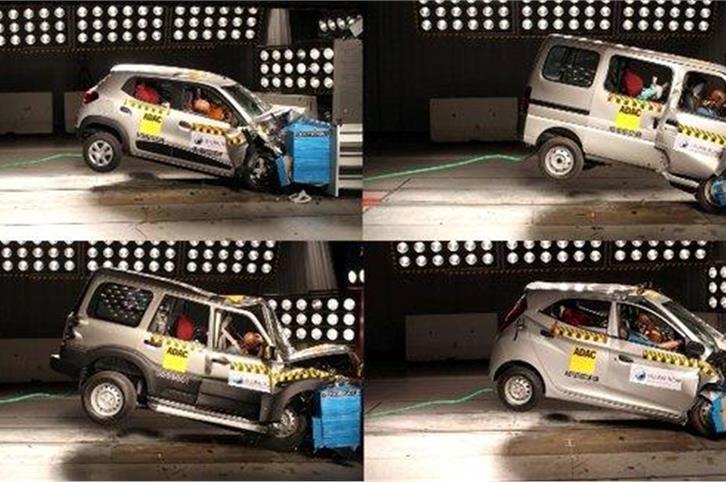Better crash safety, whose call is it?
The zero star rating for Indian cars in the latest Global NCAP tests has led to a chorus for better safety provisions in vehicles, but whose responsibility is it?
Published on May 18, 2016 10:34:00 PM
6,850 Views
Follow us on
The results are in and of the five Indian cars that underwent crash tests by Global NCAP, all have received a zero star rating. Many are now asking for manufacturers to provide better safety standards and not wait for legislature. So, should manufacturers oblige? Are we really concerned about safety? And are these tests fair in the first place?
The short answer is no. The Global NCAP tests are not part of Indian safety standards and so, in that sense, not fair. Then again, our regulation standards aren’t representative of real-world crash scenarios either. For the Global NCAP tests, cars are crashed offset against a deformable barrier at 64kph to simulate a possible real-world crash. So, the tests may not be legal or valid but they are relevant.
But just how relevant? Barring the Kwid, which had its airbag-equipped model tested, the Scorpio, Celerio and Eon had the non-airbag models tested. Some manufacturers claim this is unfair but the argument for Global NCAP is that they test the base variant or the ‘minimum’ level of safety in a model on offer.
The lesson here then is, instead of limiting airbags to only the expensive, higher variants, like the norm is here, manufacturers should provide airbags, at least as an option, on all variants. Of course, catering for this option would add to the price of the car.
This is where we as consumers must do our bit. Most drivers use seat belts only to avoid a possible fine and passengers in the back seat are rarely belted up either. Look beyond cars and we can see there is no culture of safety in our everyday lives. People are killed crossing railway tracks, fire escapes are blocked in residences and no one seems to care. It’s high time we accord safety its rightful priority and only then would things like airbags follow.
But airbags are not the only answer. In the absence of proper, meaningful safety regulation, we will only get ‘window dressing’ safety like airbags on structurally weak cars and changes to the overall engineering and build process required to keep passengers safe
will not happen.
Thus, customer concern and regulation must come together; as is typical in any competitive business, a company that is looking for a price advantage will always provide things that customers care about and ignore the rest while meeting the minimum enforced standards.



Comments
Member Login
Personal Details
No comments yet. Be the first to comment.